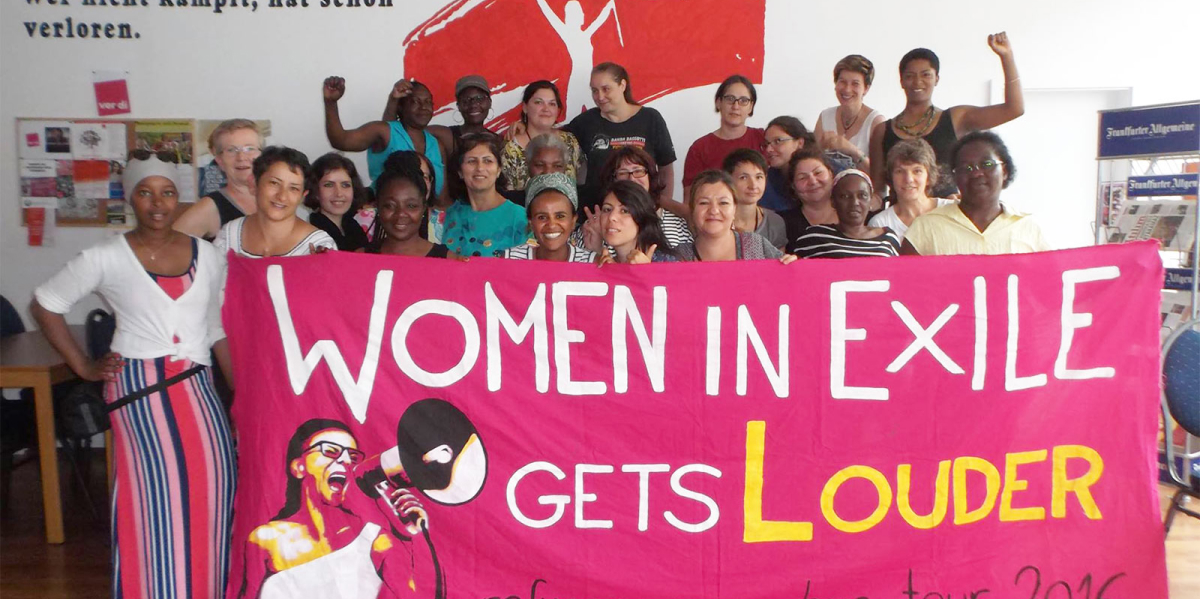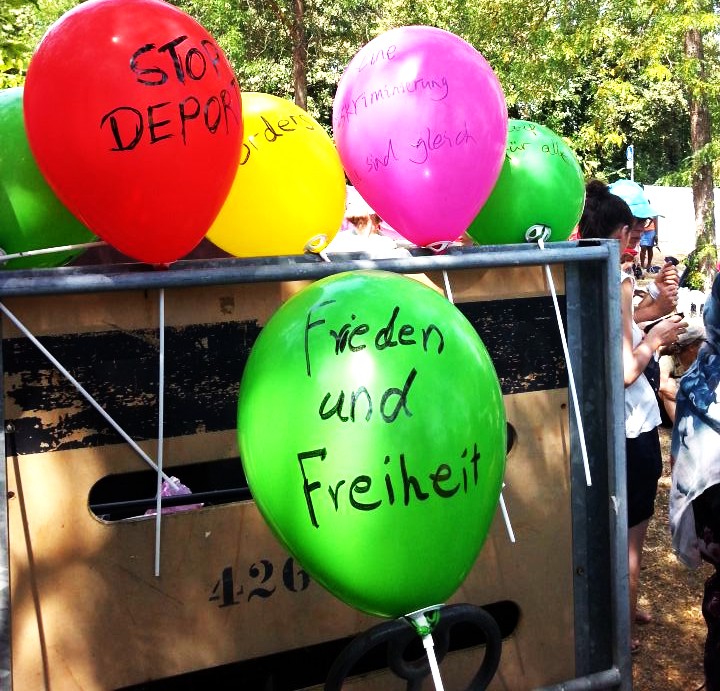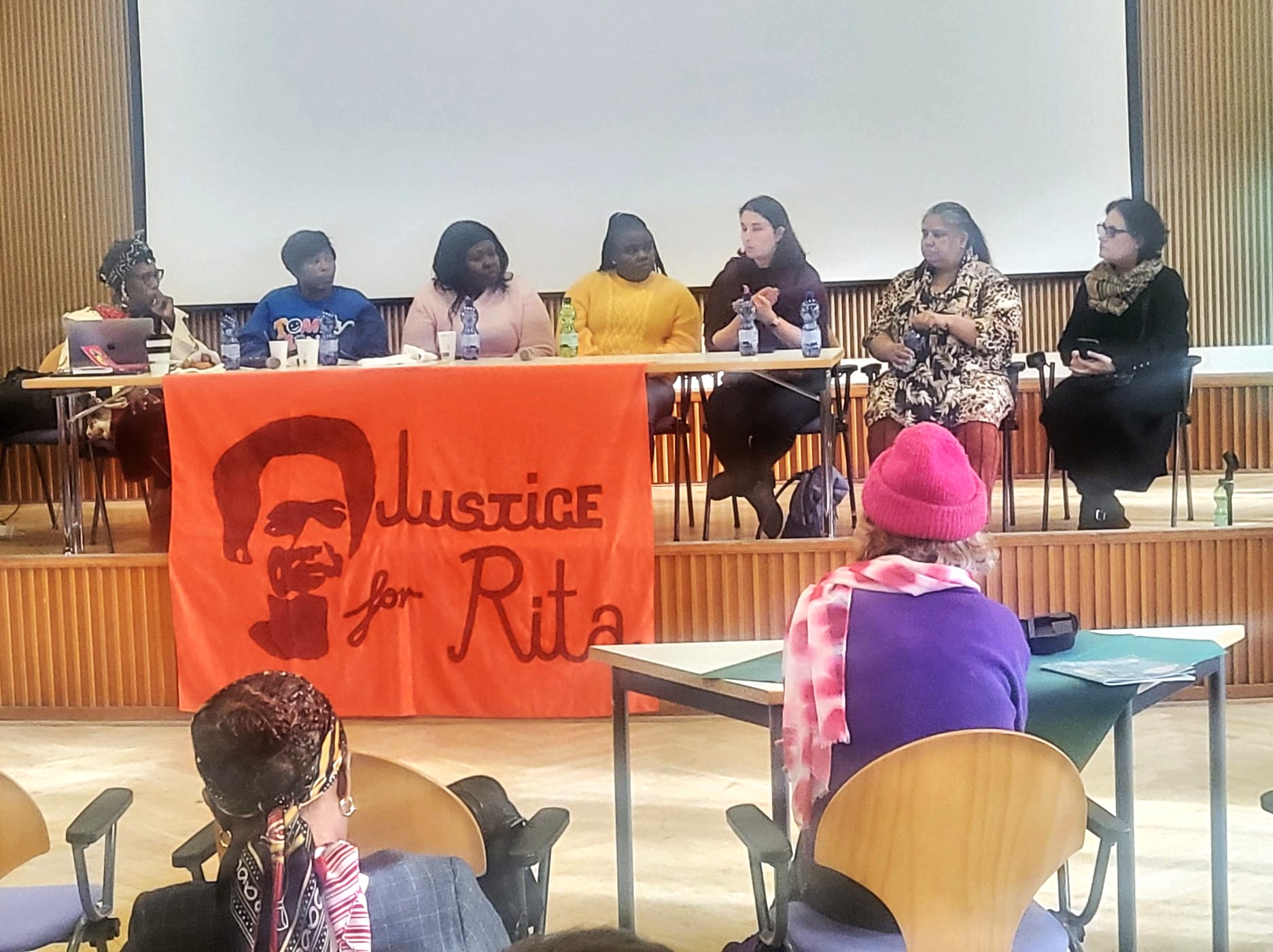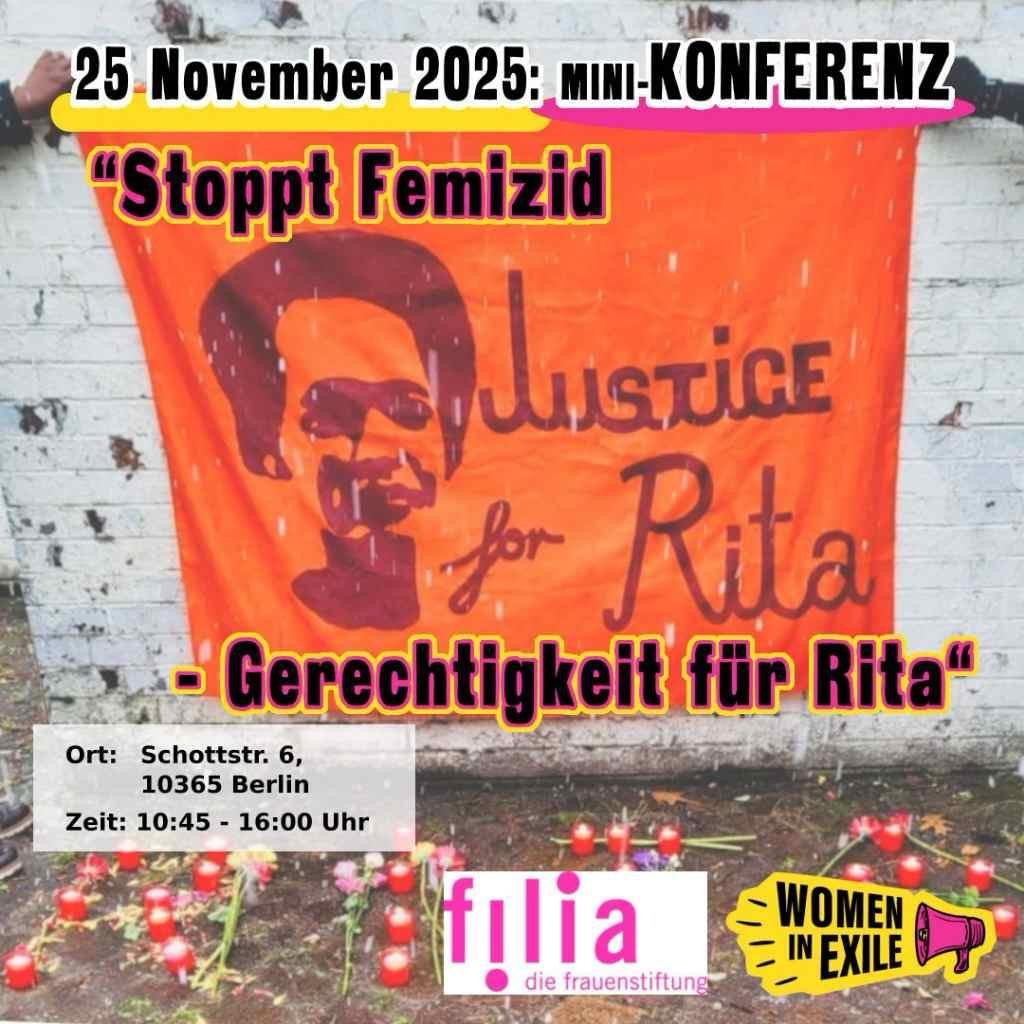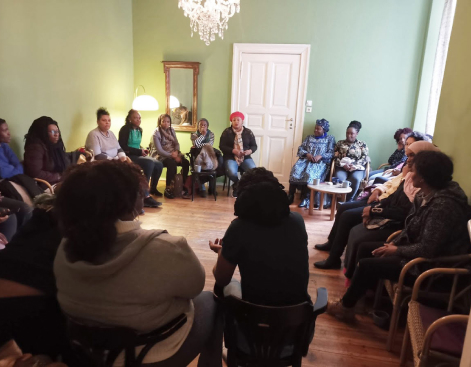Dear freedom fighters,
the women of the International Women Space in the Refugee School wrote a text against Lagers, German asylum laws and isolation.
here is the text please spread it !
Good reading to all of you !
FREEDOM, SOLIDARITY AND SISTERHOOD !!
25.11:International day against violence towards women: Statement of the IWS
This 25th November 2013 marks the annual International Day against violence towards women. Europe tends to promote itself as safer than other regions and as a defender of women and children’s rights and safety. However on this day we choose to remind European Governments, and Germany in particular, that their racist policies and laws are make migrating women and those within the asylum system in Germany more vulnerable.
The International Women Space has been active for one year and is a collective of women in an occupied building in Kreuzberg, Berlin. We work together in a self-organized, non-hierarchical structure. Acknowledging our diversity of nationality, culture, class and residency status, we aim to exchange knowledge and strengthen our understanding of the context of asylum and migration for women. This sharing of experience enables women to voice their struggles whilst collectively supported and empowered.
On this day, to highlight the frequently inhumane treatment of women within the asylum system, we present some thoughts regarding asylum laws in Germany and the increased levels of harassment and violence that women experience.
Sexual harassment and violence are a global phenomenon, affecting women regardless of culture or nationality, to varying levels of intensity and in circumstances that range from domestic to social and often work related. Very often women, affected by harassment or violence, do not know how to address the issue or seek support.
The German asylum system and European migration law often subject people seeking for asylum to daily repression, with women experiencing effects that are far more extreme.
In Germany many refugees are assigned communal homes for living “Heims/Lager”, often in remote locations, far away from social/ cultural/ learning/ medical/ legal centres, entertainment, shops. These Heims frequently create situations of fear and isolation for women and children. There is often inadequate support available close by for individuals suffering from mental/ physical trauma, violence or sexual harassment. For many women, their lack of comprehension of the German language can also impact unfavourably on an ability to find professional help.
Additionally the Residenzpflicht law, prohibiting one to leave one’s Landkreis beyond a 30km radius from a registered Heim, disables women to access adequate support when needed, to find a safe space away from a violent situation or relationship, as well as access information about domestic/sexual violence, consent, family planning etc. The Heim isolation, restriction on movement and language difficulties can lead to further intimidate, and thus disempower, many women already frightened.
Certain Heims closer to bigger cities have more access to associations that provide appropriate counseling or support centers. However this does not completely ensure that women are safer or able to find alternative living options.
The Lager/Heims in remote locations like in Eisenhüttenstadt, (a reception centre and deportation prison for more than 700 refugees), has only one Frauenhouse (Frauenfürfrauen Eisenhüttenstadt) that accepts refugee women ~ “if there is room”. The Profamilia Eisenhüttenstadt, when asked about their capacity to support and council refugee women, referred back to the Lager/Heim administration.
The experience of racism and isolation in the Heims are not only driving people to depression and illness, but they also put women in frequently dangerous situations. Most refugee women are not given legal work permission, further exposing them to dangerous and exploitative work place practices. These include excessively low wages, harassment and prostitution, increasing one’s vulnerability to life-threatening infections.
It is intolerable for women having fled violence in their home country, to remain exposed and vulnerable with very little, if any, appropriate support.
Let us consider the issue of birth control. First one goes to the Sozialamt to ask for a Krankenschein, permission to see a doctor. The process of getting a Krankenshein can be in itself frustrating. Additionally the doctors are sometimes found to be inefficient and uncooperative. The language barrier affects every interaction from arranging appointments to communicating with the doctor. Often one is dependent on a translator, and indeed, one might need a female translator depending on what one has to discuss.
Therefore a basic need like family planning becomes a major and unwieldy process and many women have to prioritize their time into more immediate needs, like looking after their children. This further increases the chances of pregnancies ~ unplanned and often unwanted. Additionally the isolation within the Heims makes it difficult for women to access medical care, resulting in lack of information and prevention about sexually transmitted diseases, like HIV and AIDS.
Whether under Dublin 2 or in receiving a rejection response to their case, every women seeking asylum, single or with family, faces the continual risk and fear of deportation. This creates a state of perpetual uncertainty and instability. In many cases one’s only option to stay, or to prolong one’s stay, may be to marry a European citizen or to create a child.
This reality puts many women at serious risk of being exploited in wedlock. There are many marriages that develop with love and respect for one another. However, vulnerable and lacking rights, a woman’s precarious legal situation may put extreme pressure on her to marry, no matter what the treatment might be from her partner.
For many pregnant mothers, isolation makes it difficult to lead a normal life. A woman may have to care for her other children, in some cases with the help of the father but not always. If she has to attend antenatal clinics she may need to take the other children with her. At every level, women often have to manage all the different needs of those around them, enduring high stress whilst taking little care of their own selves and needs.
Many women are faced with the devastating threat of deportation, some may try to stay “illegally” in precarious positions of social exclusion, others by creating a baby or possibly marrying into insecure/ untrustworthy partnerships.
On this day we hope to remind ourselves, and many others who live in difficult situations, that to remain humiliated and in isolation is intolerable. We wish to expose the vulnerabilities, contradictions and unacceptable conditions that refugee women are subject to. In the struggle for mutual protection, collective and self-empowerment, knowledge, security and support are crucial.
We women want to state that we are present in the lagers creating networks, building bridges between refugees, self-organized groups and organizations. We will continue to document and inform people and we call for support to build vigilance on violence and abuse against women.
Lets build strong solidarity !
WOMEN UNITE !
We, the women from the international Women space in the occupied Refugee school, therefore demand:
Freedom of choice of residence !
Freedom of movement !
Right for apartments, for all those living in lagers !
Abolish Residenzpflicht !
Right to work and proper medical care !
Access to education !
